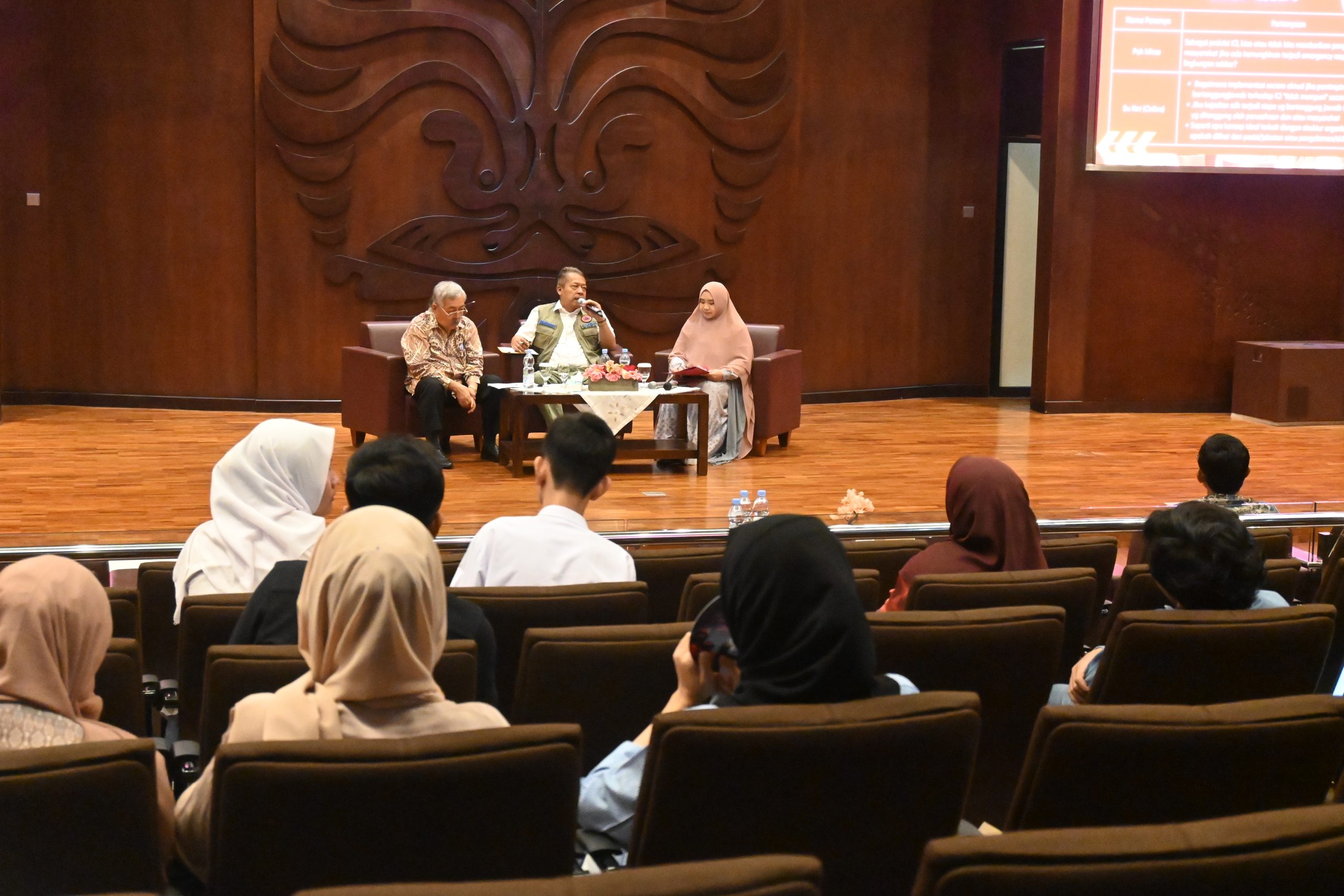The implementation of Occupational Health and Safety (OHS) culture is a crucial factor in creating a safe and healthy work environment. OHS culture must be continually instilled and implemented across various sectors. It is not only the responsibility of policymakers who create regulations but also involves raising awareness among the public in their workplace environments. Therefore, the Occupational Health and Safety (OHS) Expo, an annual event organized by the Student Association of the Department of Occupational Health and Safety, Faculty of Public Health (FPH) at the Universitas Indonesia (UI), serves as a platform to enhance public awareness and knowledge about OHS. This year, the event marks its 15th edition.
On Saturday, October 19, 2024, the OHS Expo 15 culminated in a National OHS Seminar with the theme “Establishing Safe and Prepared Workplaces by Integrating Safety Culture Across Different Sectors and Industries.” The seminar featured practitioners, academics, and related agencies competent in their fields. The seminar aimed to broaden knowledge on OHS and optimize the achievement of an Emergency Response Plan (ERP) across various business sectors.
“OHS is a field that will never lose its relevance. However, this OHS culture has not yet fully developed in our environment. I hope this seminar can be a platform that enhances our understanding of OHS, so at the very least, we can apply it in our daily lives,” said Dr. Hendra, S.K.M., M.K.K.K., a lecturer at the OHS Department of FPH UI.
Prof. Indri Hapsari Susilowati, S.K.M., M.K.K.K., Ph.D., Manager of Alumni Relations and Ventures, also shared her hopes for the implementation of OHS culture in Indonesia. “To establish a culture, it cannot be achieved in just one or two years; it must be continuously promoted. I hope this event leads to concrete steps in internalizing OHS culture in our surroundings,” said Prof. Indri in her opening remarks.
In her presentation, Prof. Dra. Fatma Lestari, M.Si., Ph.D., Professor at FPH UI, provided insights into Emergency Management in Indonesia. An emergency is a situation that occurs suddenly and has the potential to cause significant damage. Various types of emergencies can lead to high risks, resulting in casualties and affecting the surrounding environment. Given that Indonesia faces numerous potential emergencies, such as natural disasters, industrial accidents, transportation accidents, health crises, and public security threats, Prof. Fatma emphasized the need for emergency preparedness. “A series of actions must be taken to prepare for, respond to, and handle emergencies in Indonesia,” she stated. Emergency management involves identifying risks and managing emergencies through disaster mitigation, preparedness, and response. The benefits of emergency management include reducing health risks, minimizing business interruptions, and enhancing company performance and productivity.
The next presentation, “Industrial Disaster Mitigation and Occupational Safety Management,” was delivered by Drs. Pangarso Suryotomo, M.M.B., Director of the Preparedness Directorate at the National Disaster Management Authority (BNPB). He explained that in 2024, there were a total of 1,452 disasters in Indonesia. He emphasized that safety culture and the pentahelix collaboration must be part of individual awareness and organizational sustainability to mitigate industrial disasters and implement occupational safety management.
R. Amiroel Pribadi Madoeretno, Dipl.S.M., S.K.M., M.M., M.K.M., Head of the Fire and Safety Institute at the Petroleum Balongan Technology Institute, was the keynote speaker at the seminar. Speaking on “Emergency Response Preparedness,” Amiroel stressed, “If an emergency occurs and is not handled properly, it becomes an industrial disaster.” He added, “Emergencies might occur, and if they do, we must strive to minimize the resulting losses. It starts with planning to identify tasks and responsibilities for emergency personnel or organizations, in order to prevent the situation from turning into a disaster.”
Amiroel also outlined the elements of Emergency Management, which include prevention as the initial action in implementing an OHS program, preparedness, which refers to the readiness to respond to incidents, response actions during an emergency, and recovery actions if there are casualties that require immediate treatment. (ITM)

